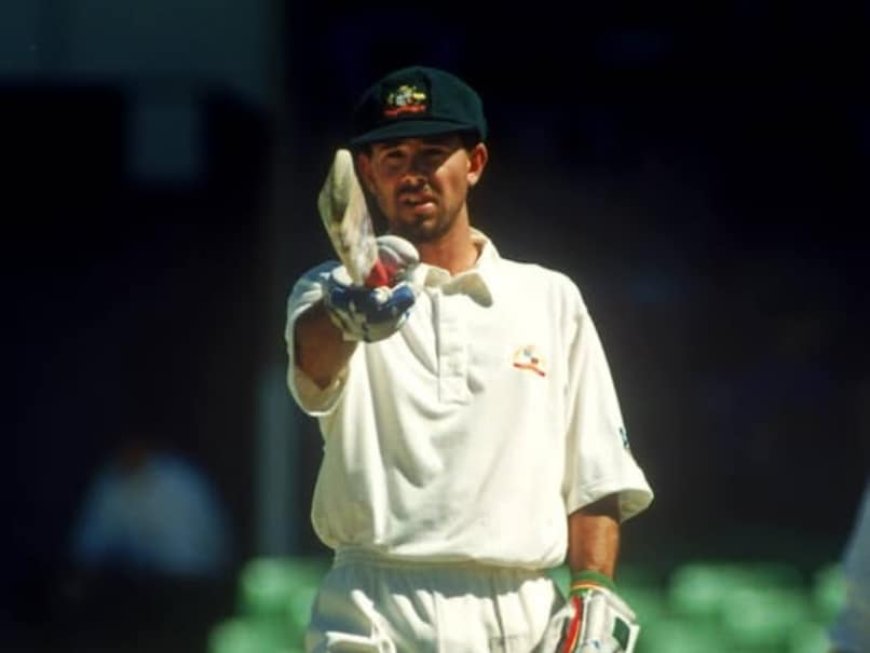Old Letters Reveal Bradman's Bold Prediction On Ponting, 2 Other Aus Greats
Sir Donald Bradman's letters not only reveal his cricketing genius but also highlight his ability to foresee greatness in players who would go on to shape the sport.

Letters written by the late Australian cricket icon Donald Bradman have surfaced, revealing his admiration for fellow Aussie legends Shane Warne and Steve Waugh, as well as his early recognition of a young Ricky Ponting as a "future Test prospect" for the nation. According to The Age, the letters, penned during the 1980s and 1990s, were addressed to British entertainer Peter Brough, a close friend of Bradman's.
They offer insights into Bradman's thoughts on fame, cricket, admiration for players, and even politics. The two met through Bradman's father, Arthur, during tours to England in the 1930s, forming a friendship that lasted until Brough's death in 1999. Bradman passed away two years later, in 2001. The letters were later donated to the National Library of Australia (NLA) by Brough's family.
In one letter dated July 31, 1991, Bradman expressed joy over South Africa's reinstatement in international cricket following its apartheid ban. He wrote, "What great news that South Africa has been re-admitted to the fold. It will help restore the balance on the ICC (International Cricket Council), and in three or four years, they will probably have a fine Test team. I always found the South African cricketers charming fellows and some of them were my greatest friends."
Widely regarded as the greatest batter in cricket history, Bradman scored 6,994 Test runs at an astounding average of 99.94, with 29 centuries and 13 fifties in 52 Tests. He was also a keen admirer of leg-spin bowling.
During a 1996 interview with Ray Martin, conducted to raise funds for the Bradman Museum in Bowral, Bradman lamented the decline of leg-spin bowling following Richie Benaud's retirement in 1964. He attributed this to the growing emphasis on economy in the one-day international (ODI) format. "The great tragedy of modern cricket is the demise of the slow leg-spinner," he wrote in a letter. "Primarily, it seems to be due to the one-day games in which 'economy' is the only thing that matters. You do not have to get the other fellow out; you only have to stop him scoring runs. Of course, young leg-spinners, when learning their trade, are always a bit expensive."
In 1992, Shane Warne made his international debut, and by early 1993, Bradman had taken notice. In a letter dated March 15, 1993, he wrote, "But thankfully, we may at last have produced a good leg-spinner in young Warne. He's only 23 and really spins the ball. I am impressed by his accuracy. In the Test versus New Zealand now being played, he is conceding less than two runs an over, which is tremendous. He should do well in England."
By November 1994, Bradman had described Warne as "the best slow spinner produced by Australia excepting Bill O'Reilly." Warne's performance during the 1994/95 Ashes series, where he claimed 27 wickets at an average of 20.33, further validated Bradman's assessment.
Eighteen months later, Bradman gave Warne the highest praise, writing, "Shane Warne is bowling brilliantly and causing all sorts of trouble. Excepting [Bill] O'Reilly, Warne is the best slow leg-spinner we've produced, better even than [Clarrie] Grimmett, and that is very high praise."
Warne went on to fulfil Bradman's expectations, finishing as Australia's second-highest international wicket-taker with 1,001 scalps across formats. His 708 Test wickets remain iconic, and he was instrumental in Australia's 1999 World Cup win, earning the 'Player of the Match' award in the final.
Bradman also had a sharp eye for batting talent. In 1985-86, he recognised Steve Waugh as a potential star, writing, "Young Steve Waugh gives every sign of being a class bat." Waugh later became one of Australia's greatest players, scoring 18,496 international runs and leading the team to World Cup victories in 1987 and 1999.
In 1995, Bradman identified a teenage Ricky Ponting as a "future Test prospect." In a letter dated October 22, 1995, he wrote, "Young Ponting of Tasmania played a beautiful innings here yesterday and looks a Test prospect." Ponting went on to become one of cricket's all-time greats, leading Australia to back-to-back World Cup wins in 2003 and 2007, and scoring 27,368 international runs, the most by any Australian.
Bradman's letters not only reveal his cricketing genius but also highlight his ability to foresee greatness in players who would go on to shape the sport.
(Except for the headline, this story has not been edited by NDTV staff and is published from a syndicated feed.)






































